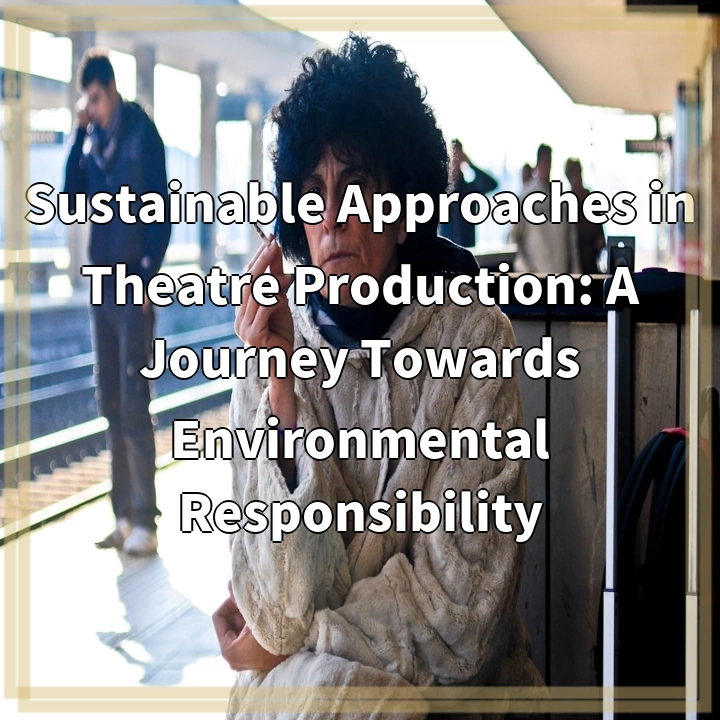
What it is:
Sustainable approaches in theatre production refer to practices and principles that aim to minimize the environmental impact of theatrical productions. It involves adopting strategies to reduce energy consumption, waste generation, and carbon emissions throughout the entire production process.
Real-World Problems:
The theatre industry, like many other sectors, faces several environmental challenges that need to be addressed:
1. Energy Consumption:
Theatrical productions consume substantial amounts of energy, primarily through lighting, sound systems, and stage machinery. Traditional lighting fixtures, for instance, often use high-energy incandescent bulbs. The energy demand contributes to carbon emissions and puts a strain on resources.
2. Waste Generation:
The production of theatre sets, props, and costumes can generate significant waste. These materials, often made of non-recyclable or non-biodegradable substances, contribute to landfill accumulation. Additionally, discarded tickets, programs, and other printed materials also add to the waste generated by the industry.
3. Toxic Material Use:
The use of toxic paints, adhesives, and other chemicals in set construction and decoration poses risks to both the environment and the health of the workers involved in productions. The improper handling and disposal of these materials can lead to pollution of waterways and soil.
4. Carbon Footprint:
The transportation of materials, equipment, and cast members between different venues can contribute to a significant carbon footprint. Additionally, the construction and dismantling of sets for each production further increase the overall carbon emissions associated with theatre productions.
5. Limited Awareness and Education:
Many theatre professionals and stakeholders are not fully aware of the environmental impact of their practices. The lack of education and awareness about sustainability options and best practices hinders the industry’s progress towards environmental responsibility.
Addressing these real-world problems and implementing sustainable approaches in theatre production is crucial to reduce the ecological footprint of the industry and ensure a more environmentally responsible future.

Solutions for Sustainable Approaches in Theatre Production:
Addressing the environmental challenges faced by the theatre industry requires a proactive approach and the adoption of sustainable practices. Here are some solutions:
1. Energy Efficiency:
Transitioning to energy-efficient lighting systems, such as LED lights, can significantly reduce energy consumption. Implementing smart lighting controls and optimizing energy use during rehearsals and performances can further minimize energy waste.
2. Waste Reduction and Recycling:
Adopting a circular economy approach can help minimize waste generation. This involves reusing and repurposing sets, props, and costumes whenever possible. Implementing recycling programs for materials like paper, cardboard, and plastics can further reduce the environmental impact.
3. Use of Sustainable Materials:
Choosing eco-friendly and non-toxic materials for set construction and decoration can eliminate harm to the environment and promote the health of theatre workers. Water-based paints, recyclable fabrics, and sustainable wood options are examples of sustainable alternatives.
4. Carbon Offsetting and Emissions Reduction:
Offsetting carbon emissions from transportation and energy use can help mitigate the industry’s carbon footprint. Collaborating with carbon offsetting organizations or investing in renewable energy sources can contribute to a more sustainable theatre industry.
5. Education and Collaboration:
Providing education and raising awareness about sustainable options and best practices is crucial. Integrating sustainability modules in theatre education programs and fostering collaborations between theatre professionals and environmental organizations can drive positive change and promote innovation.
By implementing these solutions, the theatre industry can pave the way towards a more environmentally responsible future, contributing to the overall global sustainability efforts.















